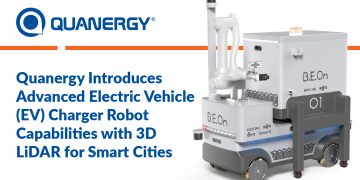Home and business automation is an idea that seemed like it was meant to stay in the realm of science fiction. However, despite the challenges engineers and scientists faced decades ago, the idea never really did fade. And slowly but surely technology trudged along until it was advanced enough to make home and business automation a reality.
This is due to a number of factors, from wireless broadband and other connectivity technologies to the nearly limitless number of smart devices ranging from mobile phones to home appliances. All of these are then seamlessly integrated in an Internet of Things or IoT system, which allows these devices to connect and communicate with one another, and execute actions based on data gathered by the different sensors present.
It is inevitable that homes, regardless of socio-economic status, will become smart and automated in some form or another, as time goes by.
The reasons for wanting to automate the home or your business is almost endless, but the main ones are as follows:
- Convenience – This is without a doubt the biggest reason why one would want an automated home or business. Having the devices connected to the IoT system do the numerous almost mundane tasks needed to keep a home or business running efficiently and smoothly frees up very precious personal time for other things. For example, waking up to the smell of already brewing coffee, with hot water ready for a shower, with the TV on to keep you up to speed to current events, could spell the difference between having a good mood throughout the day or feeling grumpy until the work shift is over.
- For businesses, automation can mean added revenue and saved money. For example, an automated restaurant that orders ingredients as soon as numbers in the fridge run low can ensure there is no risk of shortage at all and ensuring that no menu item becomes unavailable.
- Safety and Security – In the old days, all homes and businesses could hope to rely on are physical locks that need to manually be closed, closed-circuit TV cameras that need to be running all day with the risk of tapes running out of space, and police investigation after the fact should a crime happen in the home or business premises. With automated smart systems, the IoT can do so many things, from instantly lock doors and windows at designated times (or when certain conditions are met) to quickly call law enforcement should motion sensors be tripped off. High-resolution cameras could have facial recognition technology that can quickly record and send images to police if a person is identified and is not part of the database of trusted personnel. The capabilities of automated systems are now only limited by the imagination.
- Cost-effectiveness – While this might not seem so obvious at the start, especially since automating a home or a business will require a bit of financial investment, having automated systems in place can actually be much more cost-effective in the long run. For homes, it can free up the time of the homeowners and residents to focus more on their jobs, thus actually becoming more efficient. For businesses, it can remove the need for some tasks that would otherwise require another person on the payroll. In the long run, automation means money saved and revenue increased.
Home and business automation isn’t coming, it’s already here. Systems and products like Amazon’s Echo, Google’s Home Hub, and Samsung’s SmartThings Hub are just examples of home automation systems available today that can transform your home into a home that will take care of you, and not the other way around.

for developers and enthusiasts






